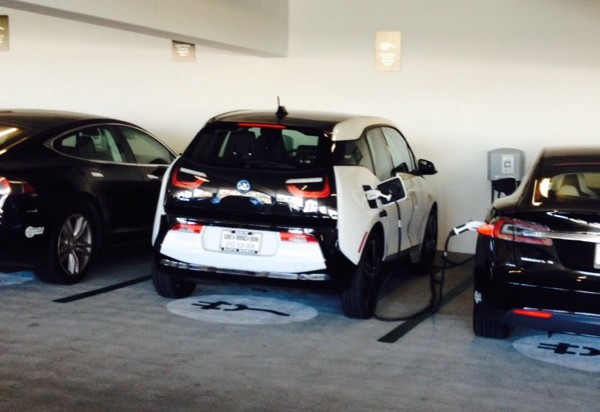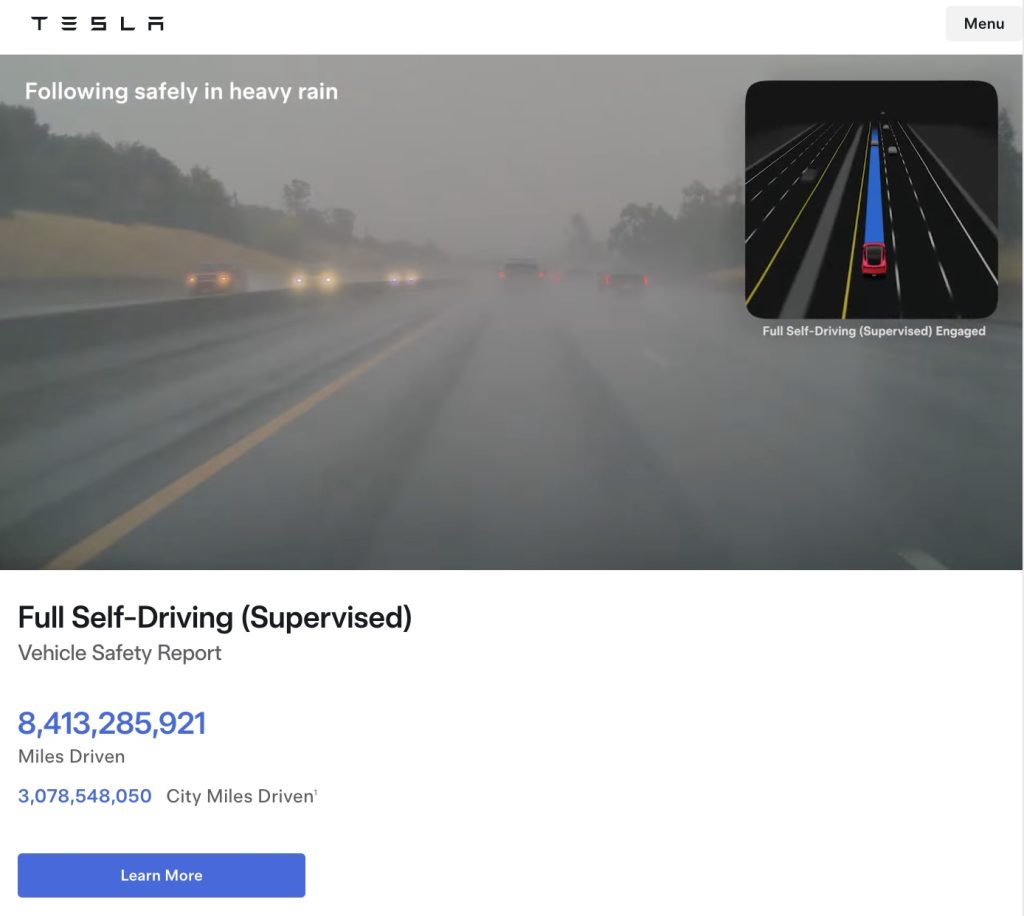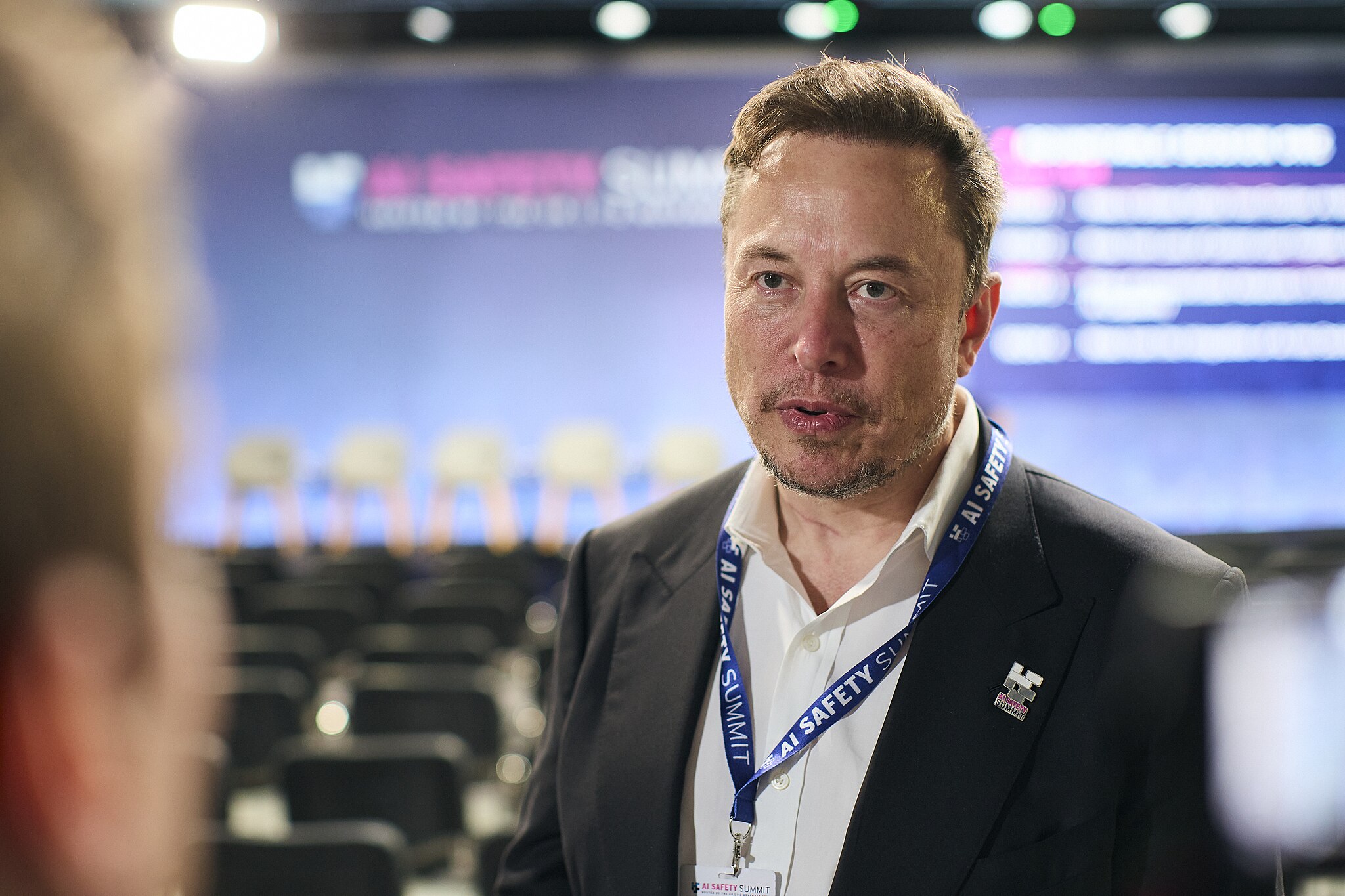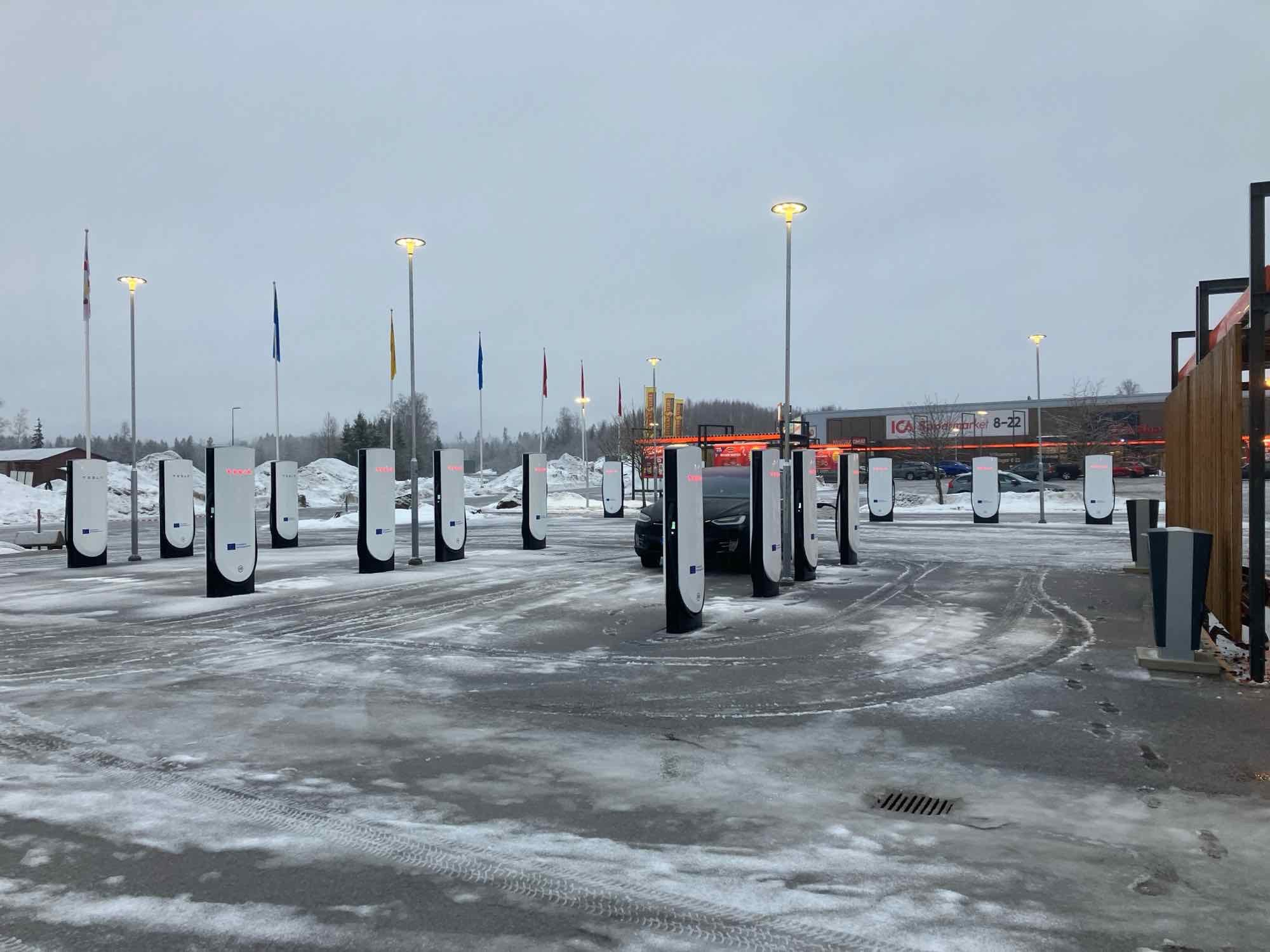News
Supercapacitor breakthrough suggests EVs could charge in seconds but with a trade-off

Supercapacitors may be providing an alternative to electric-car batteries sooner than expected, according to a new research study. Currently, supercapacitors can charge and discharge rapidly over very large numbers of cycles, but their poor energy density per kilogram —- at just one twentieth of existing battery technology — means that they can’t compete with batteries in most applications.
That’s about to change, say researchers from the University of Surrey and University of Bristol in conjunction with Augmented Optics. They have announced a breakthrough in supercapacitors, which are said to be between 1000 and 10,000 times more powerful than equivalent lithium-ion batteries and considerably quicker to recharge. However, they lack the storage capacity found in traditional automotive-grade lithium-ion batteries used in today’s electric cars. But Jim Heathcote, chief executive of Augmented Optics Ltd and Supercapacitor Materials Ltd, says consumers would likely still be happy with the trade off by having faster charging times. “A lot of people would be more happy with a half the range of a 300-mile, lithium ion-batteried EV, but a fast charging time”. If their research can be translated into the consumer market, EVs could re-charge in a time quicker than filling a vehicle with a tank of gasoline.
Tesla CEO Elon Musk has remarked in the past about the use of supercapcitors in electric vehicles, “If I were to make a prediction, I’d think there’s a good chance that it is not batteries, but super-capacitors.” The recent research could be a first sign that Musk’s prediction from five years ago could one day come to fruition.
Why a combination of batteries and supercapacitors is essential to a sustainable future
In the next few decades, fossil-fueled cars and home-heating systems will need to switch to electric power to avert catastrophic climate change. Electricity has tremendous benefits but also one significant drawback: it’s relatively difficult to store in a hurry. Batteries can hold large amounts of energy, but they take hours to charge. Capacitors are a solution to this dilemma, as they charge nearly instantaneously.
.@plugshare, assuming vast charging network WOULD YOU RATHER have a $35k #EV with …. https://t.co/awp6Nz9oQC
— TESLARATI (@Teslarati) December 6, 2016
A supercapacitor solves the problem of storing a reasonable amount of energy for a relatively short period of time. Supercapacitors have been typically used as energy reservoirs to stabilize power supplies to electrical and electronic equipment. But supercapacitors can also be connected to batteries to regulate the power they supply. However, up until this point, they have only been able to store minuscule amounts of energy.
To truly have a feasible electric-powered lifestyle in which we can store and release large amounts of energy very quickly, we need efficiency in both batteries and supercapacitors. Supercapacitors help to solve the “energy versus power” conundrum. “Energy” is the capacity to do work. In physics, work is the act of exerting a force over a distance. While energy measures the total quantity of work done, it doesn’t say how fast you can get the work done. “Power” is the rate of producing or consuming energy. Supercapacitors can bridge that divide and solve the inherent trade-off between EV energy and power.
Dr. Brendan Howlin of the University of Surrey said: “There is a global search for new energy storage technology and this new ultra-capacity supercapacitor has the potential to open the door to unimaginably exciting developments.”
They hope to have a working prototype by spring 2017. “We are now actively seeking commercial partners in order to supply our polymers and offer assistance to build these ultra-high-energy density storage devices,” said Heathcote. In current form, the high energy density supercapacitors could make it possible to recharge mobile phones, laptops, or other mobile devices in just a few seconds.
A fleet of supercapacitor-equipped buses is already in use in China, although they do not achieve the range proposed by the Surrey research team.
Shout out to Chris Woodford for background info.

News
Tesla FSD (Supervised) fleet passes 8.4 billion cumulative miles
The figure appears on Tesla’s official safety page, which tracks performance data for FSD (Supervised) and other safety technologies.

Tesla’s Full Self-Driving (Supervised) system has now surpassed 8.4 billion cumulative miles.
The figure appears on Tesla’s official safety page, which tracks performance data for FSD (Supervised) and other safety technologies.
Tesla has long emphasized that large-scale real-world data is central to improving its neural network-based approach to autonomy. Each mile driven with FSD (Supervised) engaged contributes additional edge cases and scenario training for the system.

The milestone also brings Tesla closer to a benchmark previously outlined by CEO Elon Musk. Musk has stated that roughly 10 billion miles of training data may be needed to achieve safe unsupervised self-driving at scale, citing the “long tail” of rare but complex driving situations that must be learned through experience.
The growth curve of FSD Supervised’s cumulative miles over the past five years has been notable.
As noted in data shared by Tesla watcher Sawyer Merritt, annual FSD (Supervised) miles have increased from roughly 6 million in 2021 to 80 million in 2022, 670 million in 2023, 2.25 billion in 2024, and 4.25 billion in 2025. In just the first 50 days of 2026, Tesla owners logged another 1 billion miles.
At the current pace, the fleet is trending towards hitting about 10 billion FSD Supervised miles this year. The increase has been driven by Tesla’s growing vehicle fleet, periodic free trials, and expanding Robotaxi operations, among others.
With the fleet now past 8.4 billion cumulative miles, Tesla’s supervised system is approaching that threshold, even as regulatory approval for fully unsupervised deployment remains subject to further validation and oversight.
Elon Musk
Elon Musk fires back after Wikipedia co-founder claims neutrality and dubs Grokipedia “ridiculous”
Musk’s response to Wales’ comments, which were posted on social media platform X, was short and direct: “Famous last words.”

Elon Musk fired back at Wikipedia co-founder Jimmy Wales after the longtime online encyclopedia leader dismissed xAI’s new AI-powered alternative, Grokipedia, as a “ridiculous” idea that is bound to fail.
Musk’s response to Wales’ comments, which were posted on social media platform X, was short and direct: “Famous last words.”
Wales made the comments while answering questions about Wikipedia’s neutrality. According to Wales, Wikipedia prides itself on neutrality.
“One of our core values at Wikipedia is neutrality. A neutral point of view is non-negotiable. It’s in the community, unquestioned… The idea that we’ve become somehow ‘Wokepidea’ is just not true,” Wales said.
When asked about potential competition from Grokipedia, Wales downplayed the situation. “There is no competition. I don’t know if anyone uses Grokipedia. I think it is a ridiculous idea that will never work,” Wales wrote.
After Grokipedia went live, Larry Sanger, also a co-founder of Wikipedia, wrote on X that his initial impression of the AI-powered Wikipedia alternative was “very OK.”
“My initial impression, looking at my own article and poking around here and there, is that Grokipedia is very OK. The jury’s still out as to whether it’s actually better than Wikipedia. But at this point I would have to say ‘maybe!’” Sanger stated.
Musk responded to Sanger’s assessment by saying it was “accurate.” In a separate post, he added that even in its V0.1 form, Grokipedia was already better than Wikipedia.
During a past appearance on the Tucker Carlson Show, Sanger argued that Wikipedia has drifted from its original vision, citing concerns about how its “Reliable sources/Perennial sources” framework categorizes publications by perceived credibility. As per Sanger, Wikipedia’s “Reliable sources/Perennial sources” list leans heavily left, with conservative publications getting effectively blacklisted in favor of their more liberal counterparts.
As of writing, Grokipedia has reportedly surpassed 80% of English Wikipedia’s article count.
News
Tesla Sweden appeals after grid company refuses to restore existing Supercharger due to union strike
The charging site was previously functioning before it was temporarily disconnected in April last year for electrical safety reasons.

Tesla Sweden is seeking regulatory intervention after a Swedish power grid company refused to reconnect an already operational Supercharger station in Åre due to ongoing union sympathy actions.
The charging site was previously functioning before it was temporarily disconnected in April last year for electrical safety reasons. A temporary construction power cabinet supplying the station had fallen over, described by Tesla as occurring “under unclear circumstances.” The power was then cut at the request of Tesla’s installation contractor to allow safe repair work.
While the safety issue was resolved, the station has not been brought back online. Stefan Sedin, CEO of Jämtkraft elnät, told Dagens Arbete (DA) that power will not be restored to the existing Supercharger station as long as the electric vehicle maker’s union issues are ongoing.
“One of our installers noticed that the construction power had been backed up and was on the ground. We asked Tesla to fix the system, and their installation company in turn asked us to cut the power so that they could do the work safely.
“When everything was restored, the question arose: ‘Wait a minute, can we reconnect the station to the electricity grid? Or what does the notice actually say?’ We consulted with our employer organization, who were clear that as long as sympathy measures are in place, we cannot reconnect this facility,” Sedin said.
The union’s sympathy actions, which began in March 2024, apply to work involving “planning, preparation, new connections, grid expansion, service, maintenance and repairs” of Tesla’s charging infrastructure in Sweden.
Tesla Sweden has argued that reconnecting an existing facility is not equivalent to establishing a new grid connection. In a filing to the Swedish Energy Market Inspectorate, the company stated that reconnecting the installation “is therefore not covered by the sympathy measures and cannot therefore constitute a reason for not reconnecting the facility to the electricity grid.”
Sedin, for his part, noted that Tesla’s issue with the Supercharger is quite unique. And while Jämtkraft elnät itself has no issue with Tesla, its actions are based on the unions’ sympathy measures against the electric vehicle maker.
“This is absolutely the first time that I have been involved in matters relating to union conflicts or sympathy measures. That is why we have relied entirely on the assessment of our employer organization. This is not something that we have made any decisions about ourselves at all.
“It is not that Jämtkraft elnät has a conflict with Tesla, but our actions are based on these sympathy measures. Should it turn out that we have made an incorrect assessment, we will correct ourselves. It is no more difficult than that for us,” the executive said.








